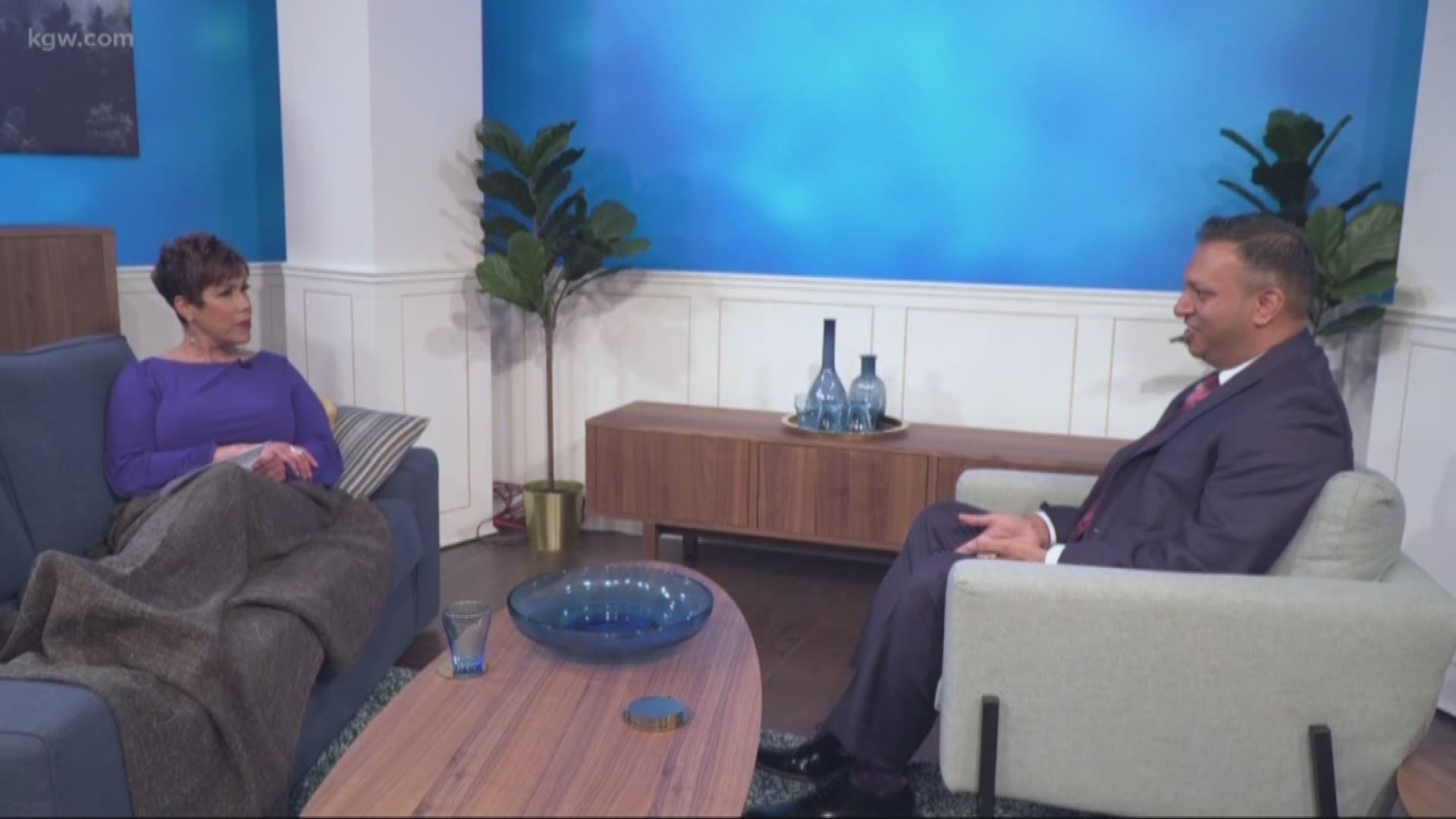Dr. Prashant James is a sleep medicine specialist at Adventist Health Portland. Brenda Braxton sat down with him to discuss what you should and shouldn't do in order to get a good night of sleep.
#1 Are silk sheets or cotton better for sleep?
Dr. James: This has to go down to personal preference. I used to think silk sheets were cool, but then I realized they don’t breathe as well as cotton. I will say, the temperature you sleep in is very important. Silk sheets have a nice feel but may not breathe as well as cotton. Cotton sheets get my vote.
#2 Do you recommend a firm mattress or a soft mattress?
Dr. James: There are so many different mattresses out there, so you have to try them all to find what works best for you. I like a firm mattress. If you have back pain then you have to be extra picky. For light sleepers, I recommend memory foam mattresses so you don’t wake up easily when your partner moves in bed.
#3 What book is on your nightstand?
Dr. James: The Journal of Clinical Sleep Medicine! I have to stay up to date but it definitely helps me fall asleep (laughs).
#4 What’s the strangest place you’ve fallen asleep?
Dr. James: It’s a little bit embarrassing but the New York City subway. It’s not the cleanest place but I remember that vaguely. I was in training and I wasn’t getting a lot of sleep, so your body will let you know and lack of sleep will eventually catch up with you.
#5 What’s the most popular sleep position?
Dr. James: I tend to sleep on my side. It is true that if you snore then sleeping on your side will help. However, snoring shouldn’t be taken lightly and it is always recommended you speak to your doctor about snoring as it could mean there is an underlying condition called sleep apnea.
#6 What’s your go-to when you can’t sleep?
Dr. James: I usually drink one of my wife’s herbal teas. Those tend to help. There is no one thing I can advise that is the go-to, but a big issue people have is staying in bed even if they can’t fall asleep. If it’s 30 minutes or longer then I recommend people get out of bed and do something quiet and calm and try to go back to bed when they do feel sleepy. You don’t want to associate the bed with something that’s not sleep.
#7 What’s worse for sleep: alcohol, caffeine, or your phone?
Dr. James: All of the above but I’m going to say alcohol. It does help you fall asleep but studies have shown that it decreases your dream sleep and your deep sleep. So you may be very restless throughout the night and still feel tired when you wake up.
#8 What’s a surprising fact about sleep that most people don’t know?
Dr. James: So we actually sleep for about 1/3 of our life and most people think that our bodies shut down while we sleep. The truth is our bodies and mind are quite active. Sleep plays a role in memory consolidation and our metabolism is working, so it’s a very active process while we sleep. It isn’t a myth that you should always get a good night’s rest before a big test or important day at work.
Bonus Questions:
What’s the most common reason people can't fall asleep at night?
Dr. James: The biggest issue is being able to turn off our brains. These days with our phones, television shows, social media and having access to so much information and entertainment with laptops, tablets and phones, there is so much going on for our brains. We have the ability to multitask so we tend to be go, go, go but trying to relax and sleep isn’t as easy anymore.
Is it true you can ”catch up” on missed sleep by sleeping in on the weekends?
Dr. James: You can catch up on some sleep. Sometimes you don’t have a choice and your body makes you sleep in on the weekends. We see this a lot with children who tend to sleep in on the weekends. My advice is listen to your body and try to get the recommended hours of sleep during the week.
What’s your favorite beverage before bed?
Dr. James: Definitely no caffeine or alcohol close to bed time. Both are not recommended because they have been shown to cause poor sleep. There is truth to a warm glass of milk, which can help in falling asleep faster.

